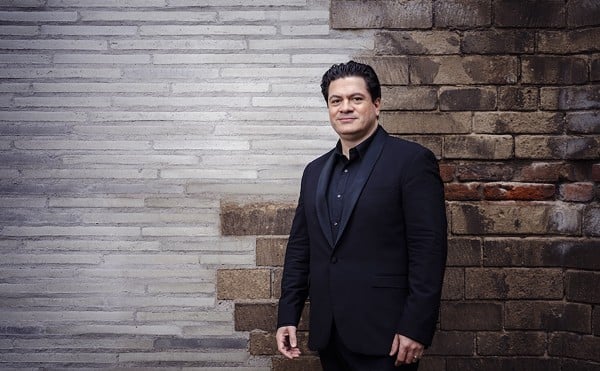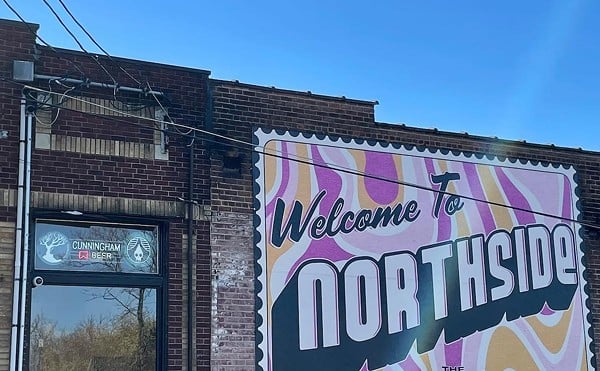|
If music stars are the epitome of hipness in our culture, then the music industry that coddles them is the out-of-touch parent who overreacts to every perceived or real crisis.
When I was 16, I had my first brush with a "rehab" experience when I was court-ordered to attend an all-day "alcohol education" class. When class began, the counselor asked everyone in the room to tell why they were there. One kid, probably about 16 as well, sheepishly said that he went out with some friends and drank for the first time in his life. He didn't even get wasted, he said, just had a few beers. The timid, embarrassed look in his eyes told us he was probably telling the truth.
When he got home, his parents smelled the alcohol on his breath and freaked. They rushed him to the hospital, where his stomach was pumped. Then they sent him to alcohol awareness school. I don't know what happened to that kid, but I doubt the experience kept him from drinking ever again.
Similarly, the music industry freaks whenever something unexpected comes along that they don't understand or don't feel like they can have complete control over. Like fumbling, overprotective parents (though protecting their own interests as much as their "children's"), the recording industry has launched intimidating campaigns to stop the illegal downloading of music and file-sharing. Besides the lawsuits, the industry has tried or proposed things like putting secret "rook-it" software on CDs to limit customers' usage (which caused harm to and allowed viruses to infiltrate consumers' computers).
Now the issue on the table is Internet radio. Oh no! You mean there are these small but global radio stations promoting labels' artists for free and they aren't giving money to the labels for the honor of promoting them? Jack up the rates! If that doesn't work, send the DJs straight to Gitmo!
In early March, the Copyright Royalty Board ruled to increase Internet radio's royalty rate between 300 to 1,200 percent, with the full support of the Recording Industry Association of America (RIAA). If the increase is allowed to go through, broadcasters online would have to pay at least three times what they are paying now.
Internet radio being a fairly new medium, many outlets are already struggling to stay afloat, as advertisers have been slow to warm to the concept. Acclaimed Cincinnati-based online radio outlet
|
Woodrow J. Hinton
|
If music stars are the epitome of hipness in our culture, then the music industry that coddles them is the out-of-touch parent who overreacts to every perceived or real crisis.
When I was 16, I had my first brush with a "rehab" experience when I was court-ordered to attend an all-day "alcohol education" class. When class began, the counselor asked everyone in the room to tell why they were there. One kid, probably about 16 as well, sheepishly said that he went out with some friends and drank for the first time in his life. He didn't even get wasted, he said, just had a few beers. The timid, embarrassed look in his eyes told us he was probably telling the truth.
When he got home, his parents smelled the alcohol on his breath and freaked. They rushed him to the hospital, where his stomach was pumped. Then they sent him to alcohol awareness school. I don't know what happened to that kid, but I doubt the experience kept him from drinking ever again.
Similarly, the music industry freaks whenever something unexpected comes along that they don't understand or don't feel like they can have complete control over. Like fumbling, overprotective parents (though protecting their own interests as much as their "children's"), the recording industry has launched intimidating campaigns to stop the illegal downloading of music and file-sharing. Besides the lawsuits, the industry has tried or proposed things like putting secret "rook-it" software on CDs to limit customers' usage (which caused harm to and allowed viruses to infiltrate consumers' computers).
Now the issue on the table is Internet radio. Oh no! You mean there are these small but global radio stations promoting labels' artists for free and they aren't giving money to the labels for the honor of promoting them? Jack up the rates! If that doesn't work, send the DJs straight to Gitmo!
In early March, the Copyright Royalty Board ruled to increase Internet radio's royalty rate between 300 to 1,200 percent, with the full support of the Recording Industry Association of America (RIAA). If the increase is allowed to go through, broadcasters online would have to pay at least three times what they are paying now.
Internet radio being a fairly new medium, many outlets are already struggling to stay afloat, as advertisers have been slow to warm to the concept. Acclaimed Cincinnati-based online radio outlet woxy.com was nearly forced out of business because of a lack of incoming funds, but was saved by an investor. If the new rates kick in, it will effectively wipe out the industry ... well, at least the smaller (i.e. "good") stations. Many of these streams come from commercial entities (some very well-financed), so the higher rates would have an effect akin to the Best Buy putting the cool ma-'n-pop corner store out of business.
The new rates are to be enacted July 15, unless someone steps in.
Enter "The Internet Radio Equality Act," introduced by Representatives Jay Inslee (D-WA) and Donald Manzullo (R-IL). If passed, the Act would overturn the fee increase and return things to the old "percentage of profits" way (vs. the new proposed model, which would charge per song). The repeal proposal has many co-sponsors so far and many are optimistic about its chances.
If Internet radio goes, independent artists lose a valuable promotional tool. Everything from Jazz, Blues and World music to underground Hip Hop, Indie and Death Metal would lose their last real "radio" outlet, since they can't get the time of day from any corporate stations.
The Save Internet Radio crowd has been loud and vocal online, but the other side has been less so. The RIAA is the main booster of the higher rate proposal (could traditional radio be as well?). With the rise of music resources online, the RIAA formed SoundExchange, a "non-profit" organization that represents record companies and artists, working to see that they are "receiving fair compensation for the licensing of their music in the new and ever-expanding digital world." Essentially, they are the entity that has legal authority to collect and distribute all money for music played on satellite and Internet radio (even for non-RIAA members).
What are SoundExchange's motives when it comes to supporting the bleeding dry of Internet radio? An e-mail sent recently to SoundExchange members (which includes many independent artists, well-intentioned in their belief that SE is watching out for them) clamored for them to write/call their senators and representatives to express their opposition to the Internet Radio Equality Act. The e-mail also "revealed" the already well-known fact that SaveNetRadio was started by "big webcasters" like Clear Channel, AOL and Microsoft.
The tone of the e-mail is quite similar to SaveNetRadio's rally-cry — " 'The Man' is trying to crush the little guys."
But that's kind of like George Bush telling Americans to "just trust me" like a used-car salesman who's already sold you six or seven lemons. The RIAA's public image and strong-arm tactics have left them with little credibility on these sorts of issues.
This might be something we all laugh about in 20 years: "Remember when Internet radio was almost completely destroyed back in the '00s? God, what idiots to think they could stop technology." Perhaps the RIAA will eventually get to where they can fully embrace and make peace with scary new technology. Do they have a choice?
Internet radio is at a tipping point. Even if you think an Internet radio stream is some kind of computer fishing game, you should consider writing or calling your Congressperson and let them know what you support. Chances are if you listen to music, you will someday be using Internet radio.
Go to Savenetradio.org for the lowdown on the Internet Radio Equality Act. For info on the RIAA and SoundExchange's views, visit SOUNDEXCHANGE.COM.





